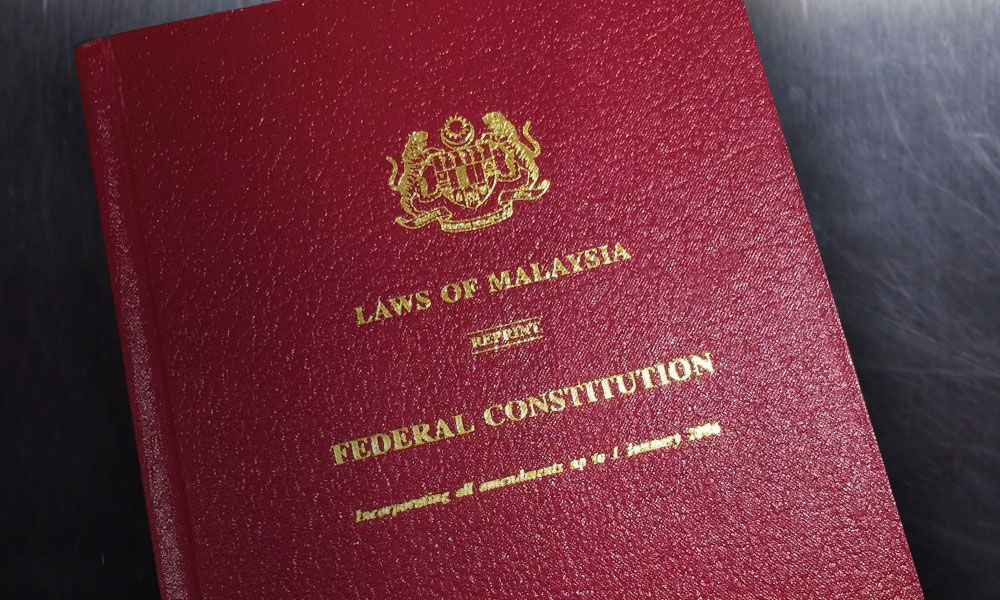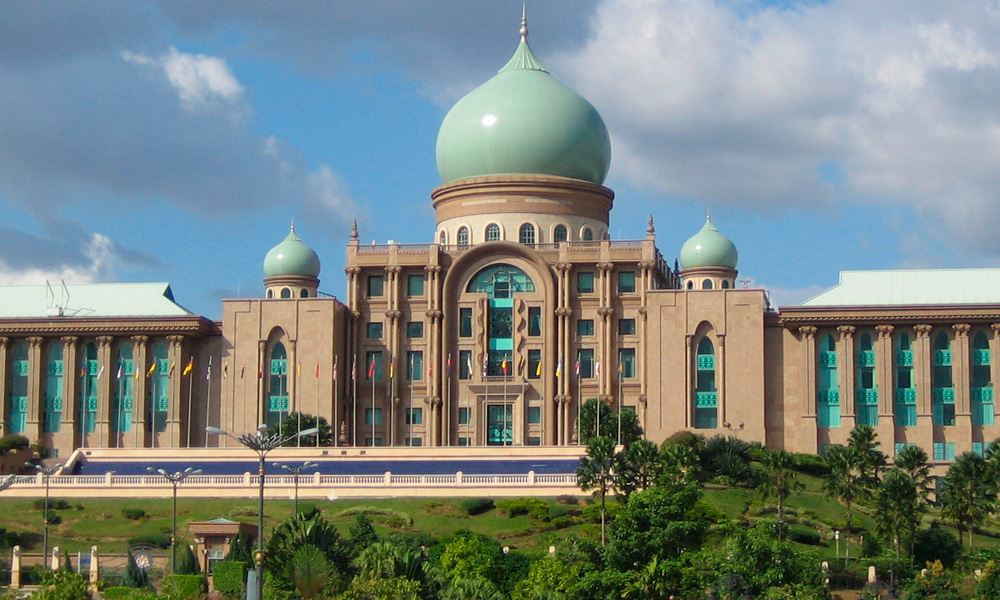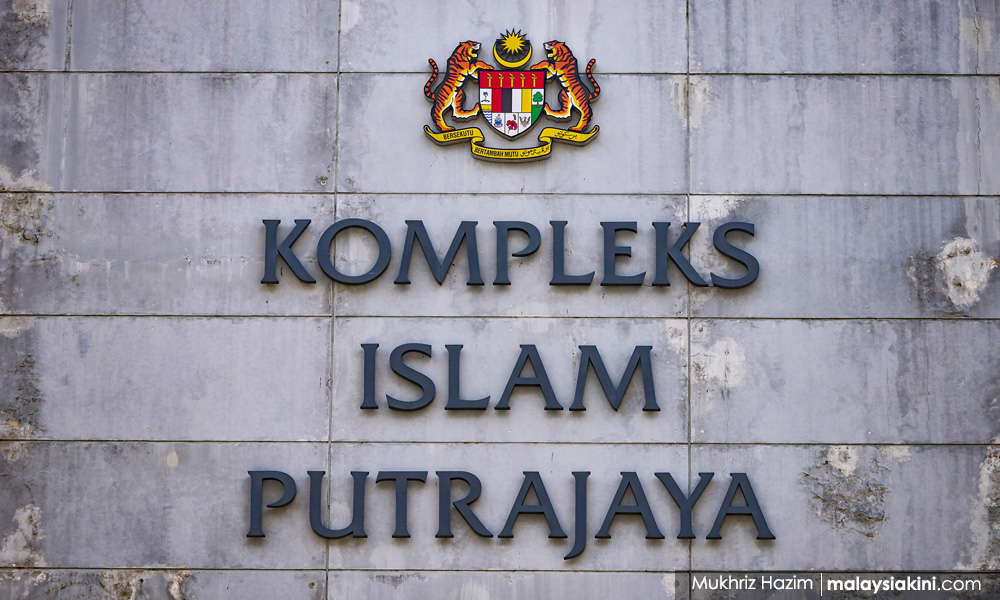
Teng Chang Khim
Published: Oct 25, 2024 10:37 AM
COMMENT | There are four reasons why the proposed Mufti (Federal Territories) Bill 2024 should not be tabled in Parliament.
First of all, the bill itself is unconstitutional as Section 4 of the bill stipulates that:
Functions of mufti and deputy mufti
4. (1) The mufti shall aid and advise the Yang di-Pertuan Agong in respect of all matters of Islamic law, and in all such matters shall be the chief authority in the Federal Territories after the Yang di-Pertuan Agong, except where otherwise provided in this act.”
The first clause of Section 4 has clearly contravened Article 3(5) of the Federal Constitution which states that:
“(5) Notwithstanding anything in this Constitution the Yang di-Pertuan Agong shall be the head of the religion of Islam in the Federal Territories of Kuala Lumpur, Labuan and Putrajaya; and for this purpose Parliament may by law make provisions for regulating Islamic religious affairs and for constituting a Council to advise the Yang di-Pertuan Agong in matters relating to the religion of Islam.”

Article 5(3) empowers Parliament to make Islamic law and to constitute a council to advise the king in matters relating to the religion of Islam which necessarily includes Islamic law.
However, Section 4 of the bill seeks to make the mufti, instead of a council as provided, to aid and advise Agong in respect of all matters of Islamic law.
Furthermore, Article 5(3) only provides for a council to advise Agong but the bill seeks power for the mufti to aid Agong, a power which is even not contemplated by Article 5(3).
Section 4 has not only sought to usurp the power of a council, if it has been constituted, but even provided for an ultra vires power of aiding Agong which is not intended by the Federal Constitution.
No ‘chief authority’
Secondly, the second clause of Section 4 of the bill again offended Article 5(3) by providing that the mufti shall be the chief authority in the Federal Territories after Agong in all matters relating to Islamic law.
There is no such provision in the Federal Constitution to create a position being the chief authority after Agong in matters relating to Islamic law.

Except for Article 33 of the Constitution which provides that there shall be a deputy supreme head of the Federation called the deputy Yang di-Pertuan Agong, there is no other provision in the Constitution that allows the creation of a position second to Agong.
As Section 4 is the fundamental clause and main purpose of the bill, its unconstitutionality renders the whole bill unconstitutional as it offends Article 5(3) of the Constitution.
Far-reaching impact
Thirdly, Section 13 provides that:
“13. (1) If the Fatwa Committee finds that an issue or question on Islamic law which in need of the issuance of a fatwa affecting the national interest, the mufti may submit the issue or question to the Muzakarah Committee.
(2) If the Muzakarah Committee issues an opinion in Islamic law that:
(a) a fatwa to be issued in relation to that issue or question; or
(b) any other fatwa on that matter to be issued,
and the Fatwa Committee agrees with the opinion issued by the Muzakarah Committee, the mufti may cause the fatwa to be issued according to that opinion with or without amendment.”

The language in Section 13 is simple and crystal clear. Long and short, the mufti can now issue a fatwa on an issue or question on Islamic law affecting national interest with the participation of the Fatwa Committee and the Muzakarah Committee.
The far-reaching implication of Section 13 is disturbing. The Fatwa Committee and Muzakarah Committee are merely committees set up under the relevant parliamentary acts which are not vested with power by the Constitution to interpret what matters constitute national interest.
Article 39 clearly provides:
“39. The executive authority of the Federation shall be vested in the Yang di-Pertuan Agong and exercisable, subject to the provisions of any federal law and of the Second Schedule, by him or by the cabinet or any minister authorised by the cabinet, but Parliament may by law confer executive functions on other persons.”
Article 39 clearly stipulates that federal executive power is vested in Agong and exercisable by the cabinet or any minister authorised by the cabinet.
For matters of national interest, it is imperative that it has to be interpreted and evaluated by the cabinet or any authorised minister.
“39. The executive authority of the Federation shall be vested in the Yang di-Pertuan Agong and exercisable, subject to the provisions of any federal law and of the Second Schedule, by him or by the cabinet or any minister authorised by the cabinet, but Parliament may by law confer executive functions on other persons.”
Article 39 clearly stipulates that federal executive power is vested in Agong and exercisable by the cabinet or any minister authorised by the cabinet.
For matters of national interest, it is imperative that it has to be interpreted and evaluated by the cabinet or any authorised minister.

Conferring or delegating power exercisable by the executive to the mufti to make a fatwa affecting national interest is therefore unconstitutional and such an attempt demonstrates utter contempt of the Constitution.
Against Constitution
Some may argue that Article 39 also allows Parliament to confer executive functions on other persons, and in this respect the mufti, through the bill.
If this were the intention of Parliament in passing the bill, it would be tantamount to the cabinet surrendering its executive power of interpreting and evaluating matters relating to the national interest to the mufti and the two committees under the relevant Islamic law.
Matters of national interest shall be dealt with from the perspective of the nation which is multi-ethnic, multi-religious and multi-cultural and not merely from the perspective of the Muslims, Islamic law and Islamic authorities.
Section 13 is certainly unconstitutional and against the spirit of the Constitution.
Special immunity
Fourthly, Section 39 of the bill provides that:
“33. The Public Authorities Protection Act 1948 [Act 198] shall apply to any action, suit, prosecution or proceedings against the mufti, deputy mufti, akidah consultant or members of the committee appointed under this Act in respect of any act, neglect or default done or committed or any omission by it or him in good faith, in such capacity.”
The bill seeks to protect the mufti and the relevant persons under the bill from any legal actions, civil and criminal, in the event of any omissions or wrongs committed by them as long as they act in good faith.

This provision seeks to award a special immunity status to the mufti and the relevant persons under the bill which is unnecessary in practice but has far-reaching repercussions and impact.
It elevates the mufti and the relevant to a status above the law if they act in good faith in their respective capacities. For instance, if a fatwa is made to prohibit Muslims from patronising non-Muslim restaurants without halal certificates, although such a fatwa only binds the Muslims the non-Muslims will also be adversely affected.
Nevertheless, aggrieved non-Muslims will not be able to seek any legal remedy in any court of law. This may again offend the constitutional protection that all persons are equal before the law and no one shall be discriminated against on the grounds of religion as stipulated in Article 8 of the Constitution.
In conclusion, the executive should withdraw the bill which has been tabled for the first reading in the last sitting and abort the attempt to table it on the grounds of the inherent unconstitutionality of the bill.
TENG CHANG KHIM is a former Selangor state executive council member.
No comments:
Post a Comment